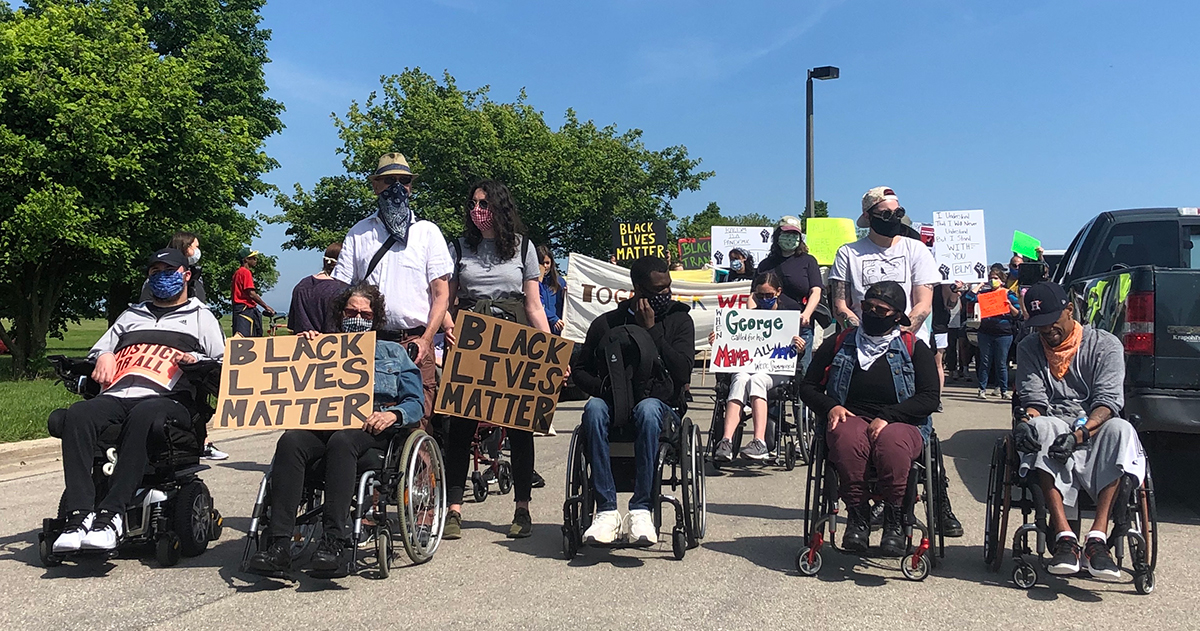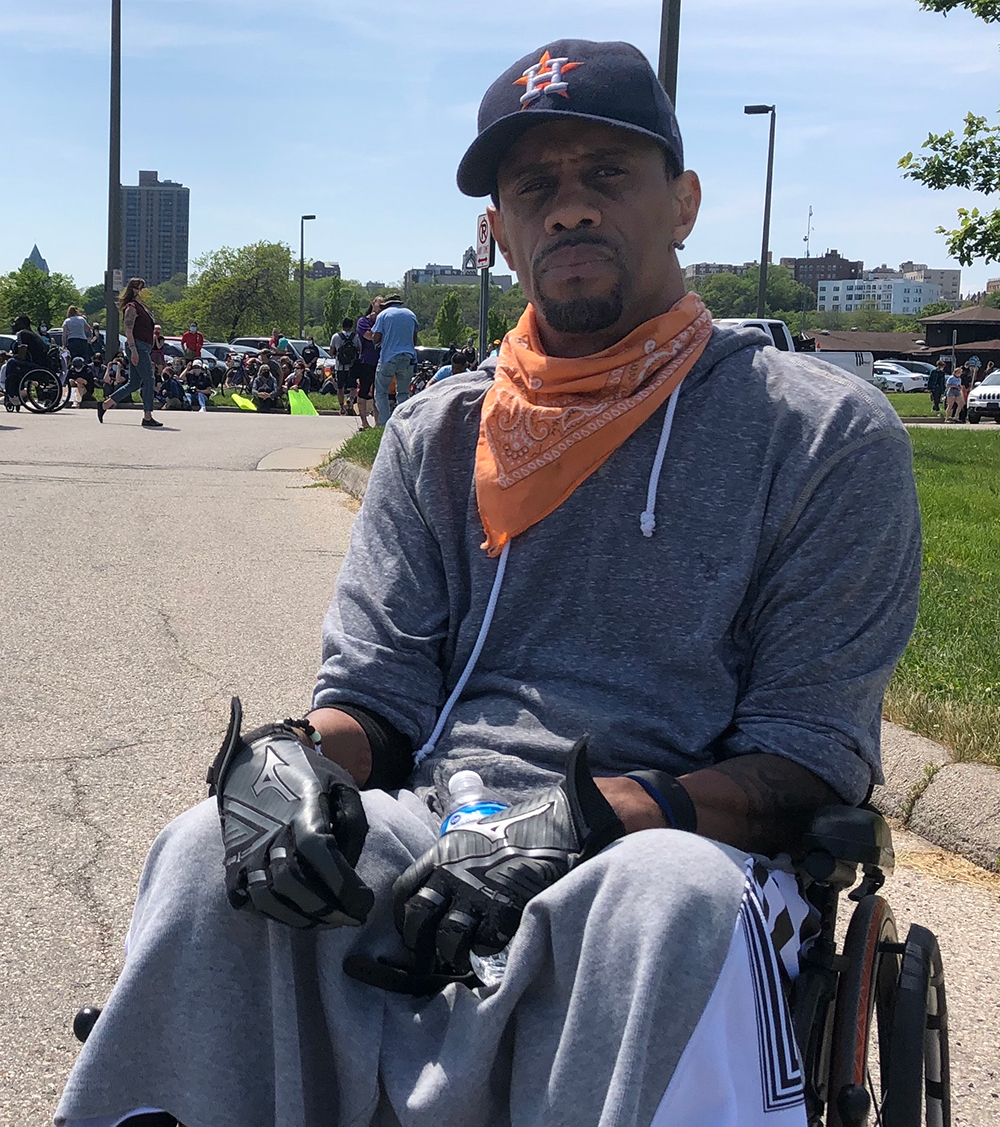Organizing An Accessible Protest
After the George Floyd killing, I was talking about the Black Lives Matter protests with three of my coworkers. One guy was asking, “Why aren’t African American people with disabilities out in the march? We know that police brutality happens to people with disabilities, whether it’s physical, mental health or whatever.”
The four of us — a biracial coworker, two Caucasian coworkers and myself — we all got together, and within three days we were able to mobilize and organize a protest in Milwaukee. We mapped out the march where there were flat surfaces, so you wouldn’t have to worry about going up hills. We were able to get interpreters and medical people to come, and we had enough people that if anyone needed assistance, they could get it. There were volunteers set up to give marchers water, fruit and other foods.
We got together at the lake front, and our march was all together probably three to four hundred people. We notified the organizers of the original BLM marches about what we were doing, and that we weren’t doing this in separation of what they were doing, but to raise awareness for people with disabilities also in the community. They joined our march. You had all the people with disabilities up front, along with interpreters, and we dictated the pace that everyone went. The other organizers and marchers were all open to changing how they did things.
We were marching by a police station, and the police department decided to try to cut us off, detour people from marching and set barricades. By doing that, they literally made it inaccessible for people with disabilities to do what the Constitution and the ADA are set up for us to do.
With some of the recent protests, a lot of people were complaining about looting and rioting, but all of this is our government’s fault. The only times there’s protest is when there’s injustice being done. So if our government was doing its job, none of this would be necessary, and none of this would be an issue.
Driving While Black
I’ve seen it with the police. I’m a C6 quad and I use gloves, the same ones I wear to push my chair, while I’m driving. I’ve been pulled over three times, once in Chicago and twice here because I had on gloves. In Chicago, my sister and I were all coming back from a Cubs game. We had just dropped off my mother and other sister, and the police stopped us. An officer came around with his gun drawn and asked why I had gloves on. That situation could’ve easily turned bad, so we had to explain about my disability.
Then here in Milwaukee, I was in my parking lot, getting ready to get out of my modified van. I dropped something to the floor and was bent over, picking it up. I had my gloves on and was using one hand to brace myself on the steering wheel. And the next thing, I look up, and there were flashlights and guns in my face, and they were like, “Wait a minute, are you stealing?”
I was like, “Stealing a car? No, this is my car. You see the wheelchair and the ramp?” The situation didn’t turn into anything because I didn’t get all belligerent, but you never know what could happen. This is just insanity. We were going through this stuff in the ’60s. We’re in 2020, and we’re going through the same thing.
I hope our accessible march helped join people with disabilities together with the other organizers and protestors and taught them something. We plan on doing more events — painting murals, hosting rallies, things like that. As things continue to go on and other situations come up, I hope that our voices will be included in those events without us having to bring attention to it ourselves. You would think that would be the same thing with race relations, but it’s clearly not. In the world, regardless of color of skin, people with disabilities are forgotten about. You have to make yourself prominent.
Harvey X. Ross, a manual wheelchair user and C7 quad, does outreach to underserved communities for Independence First, a CIL in Milwaukee, where he is employed as an independent living specialist.
** This post was originally published on https://www.newmobility.com/2020/08/marching-for-change-and-justice/



